Contextualising technical learning through news-integrated reflective writing – lessons from an architecture technology course
Presenter: W. Victoria Lee, Yeldar Gul, Tahlor Jarrett, Lucy Boyd
Session Description
Buildings contribute to around 40% of the global CO2 emission, and architects play an important role in the global effort to mitigate and adapt to climate change. In the undergraduate architecture degree programme, the 2nd year core course on technology and building environment is aimed specifically to help students understand the science behind sustainability and to provide them with a wide range of practical tools to make more environmentally responsive design decisions. These ‘tools’ can entail calculations and scientific analysis, which are often perceived as somewhat separate from the other more arts- and humanities-centred courses in the degree programme.
In fall 2020, the course was revised to include a set of short reflective writing assignments. Each requires the students to read a recently-published news article concerning the nexus of architecture, environment, climate change, and society; and write a short journal entry of their reaction to the piece. This presentation will discuss the outcome of including this specific form of assignment – one not usually used in the teaching of scientific principles. Three students will discuss their experience of the reflective writing exercise and how it enriched the technical course and encouraged them to connect to other courses in the degree programme, as well as to larger global issues such as environmental justice and gender divide.
